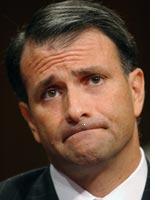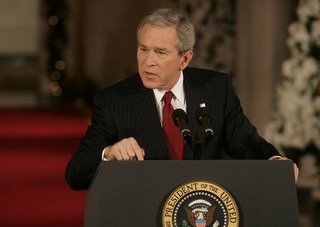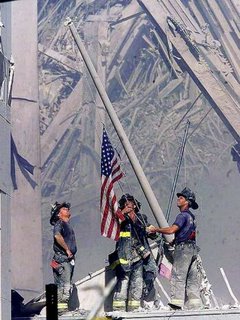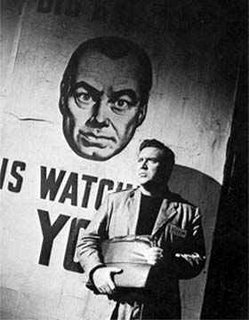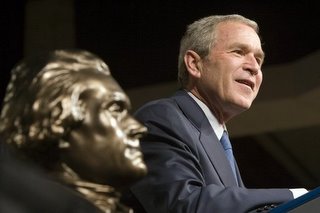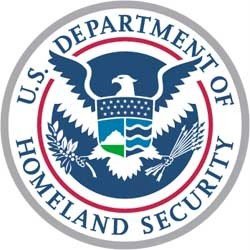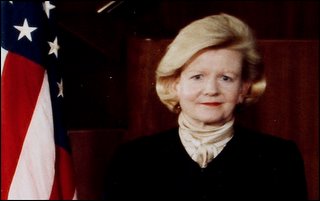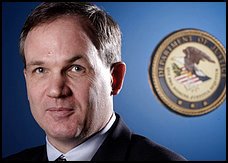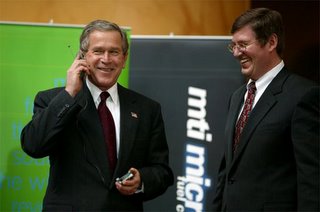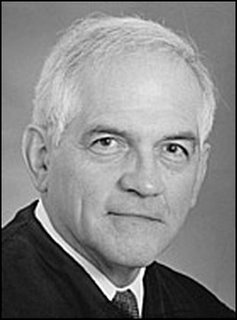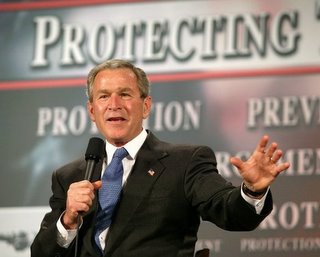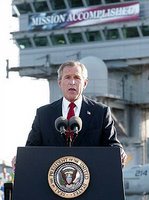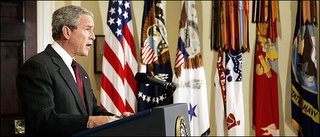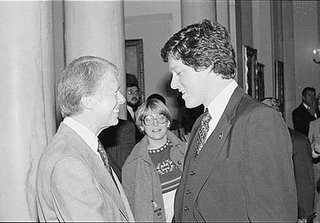
By now, every political junikie in the country has read the
Drudge Report post that Presidents Carter and Clinton both conducted warrantless searches.
Some people have held these case up as permission or even "precedent" for the current round of warrantless eavesdropping on Americans.
But the
Drudge Report provided only partial information and failed to provide a timeline.
Clearing up the ConfusionPresidents Carter and Clinton did carry out warrantless searches.
But Congress reigned them in each time.
Congress passed the FISA (
Foreign Intelligence Surveillance Act) in 1978. It outlawed electronic eavesdropping without a warrant.

President Carter did issue an executive order -- as
Drudge reported -- allowing warrantless wiretaps. But they had to comply with the rules under FISA. FISA allows warrantless searches for 72 hours before seeking a warrant:
1-101. Pursuant to Section 102(a)(1) of the Foreign Intelligence Surveillance Act of 1978 (50 U.S.C. 1802(a)), the Attorney General is authorized to approve electronic surveillance to acquire foreign intelligence information without a court order, but only if the Attorney General makes the certifications required by that Section. -- Executive Order 12139, May 23, 1979
Clinton and Warrantless SearchesPresident Clinton ordered a warrantless "physical" search -- which was allowed at the time (early 1990s) because of a loophole in the FISA.

Deputy Attorney General Jamie Gorelick
(right) is quoted in the
Drudge Report:
"[The President] has inherent authority to conduct warrantless searches for foreign intelligence purposes." -- Jamie Gorelick, July 14, 1994

What
Drudge fails to mention is that the statement came in testimony to Congress. She was not talking about electronic eavesdropping, but about maintaining the
warrantless "physical" search loophole.
Congress closed the loophole in 1995.
The subsequent
Clinton executive order Drudge mentions was issued to adjust proceedures to bring them in line with what the new FISA amendment required -- outlawing physical searches.
The Bush ArgumentNow, none of this has anything to do with the legal arguments the Bush administration have put out.
They are not citing anything in the actual FISA, nor any loopholes it left open. FISA specifically addresses elecrtonic eavesdropping. And it requires the administration to request -- within 72 hours of starting wiretaps -- a warrant fromt eh FISA secret court.
The Bush administration says they had the "implied consent of

Congress" to conduct the warrantless searches.
They base this on the September 18, 2001,
Congressional act authorizing the use of force in response to the 9/11 attacks. No where in that act does it say FISA is suspended nor that the President can spy on Americans. No one in Congress has come forward to say that was the intent of Congress.
In fact, former
Sen Tom Daschle -- who was the sponsor of the Senate version of the act and who supervised much of the debate on it -- says the
idea of giving Bush the authority to ignore FISA or any other law never came up.
The act was intended to free the President to use military force -- freeing him from possible constraints like the War Powers Act -- to conduct the war overseas.
(Watching Washington)Crossposted at

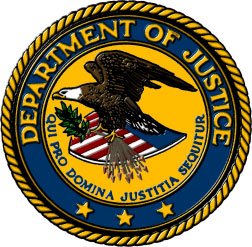 The Justice Department wants to know who blew the whistle on the NSA's domestic spying program. The Department's launched a probe.
The Justice Department wants to know who blew the whistle on the NSA's domestic spying program. The Department's launched a probe.
